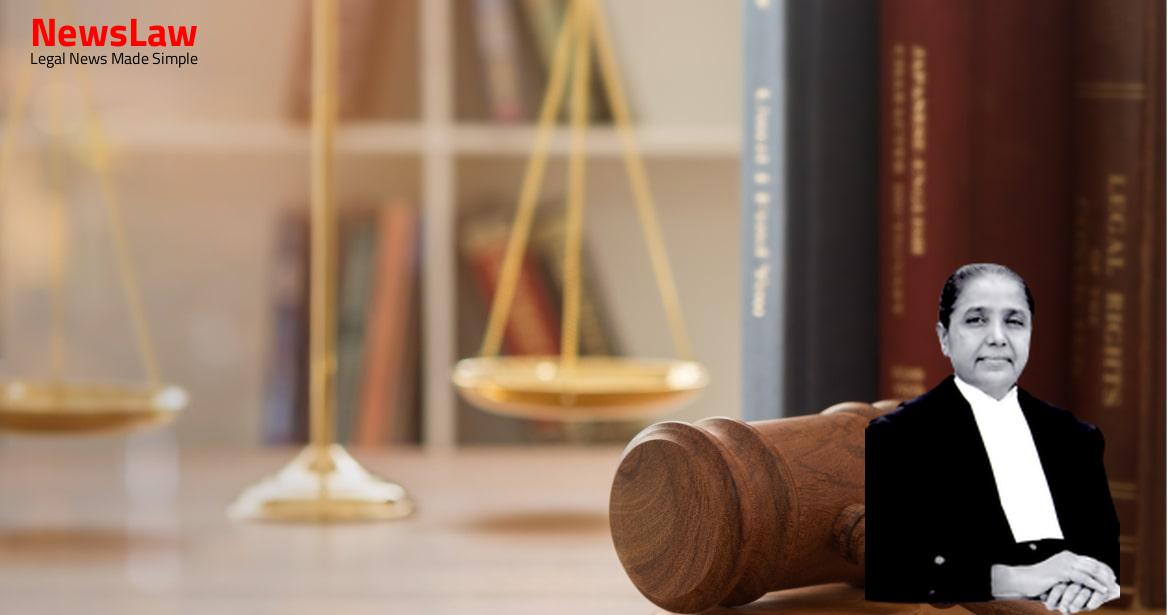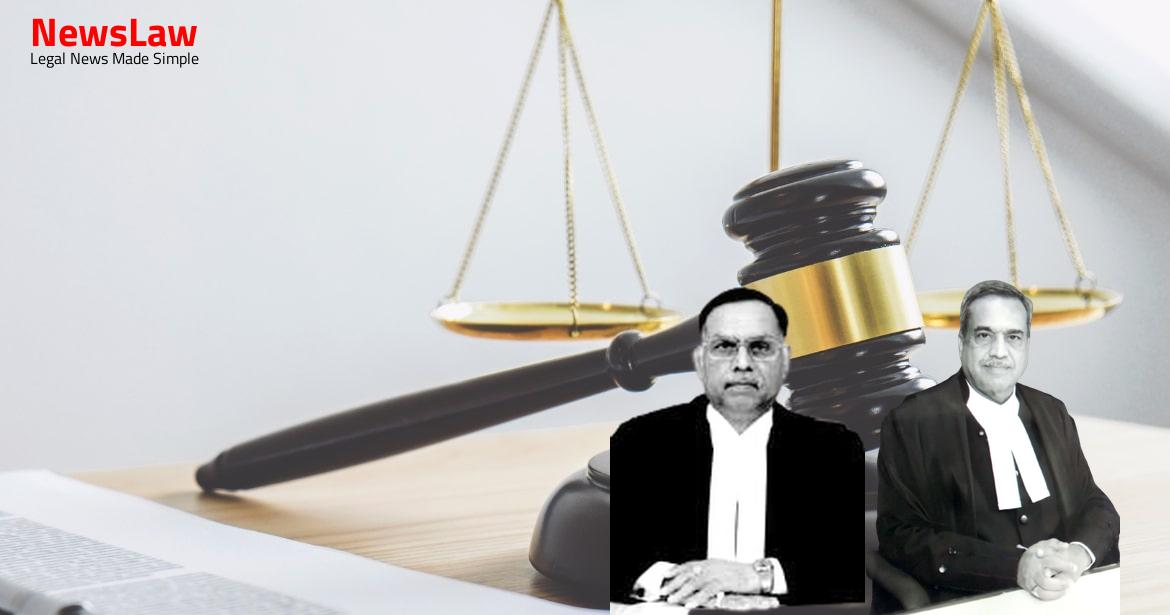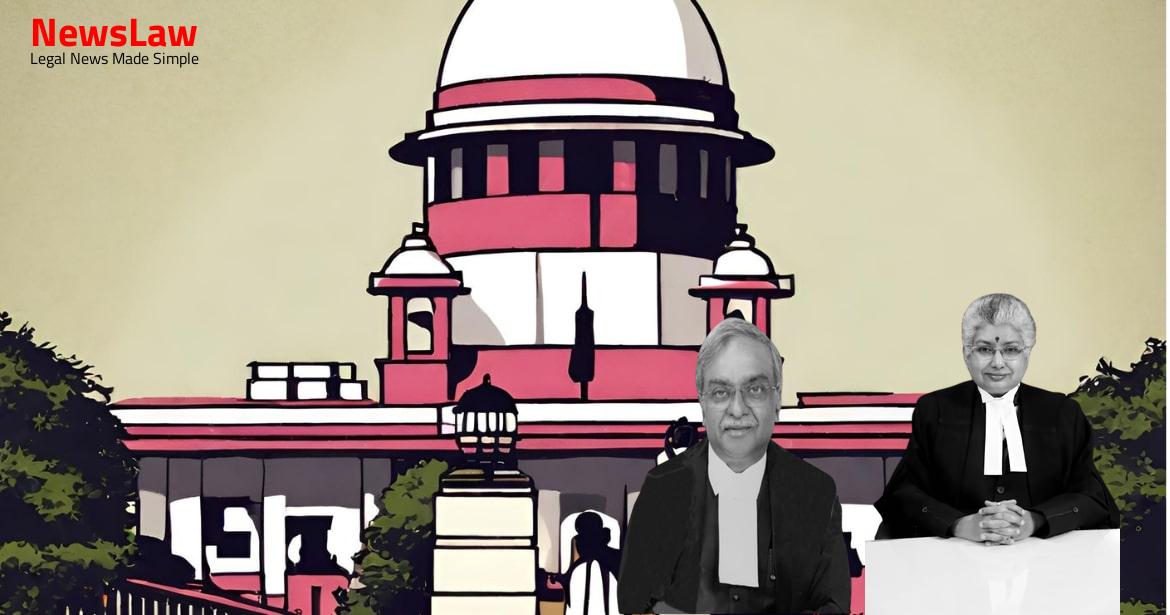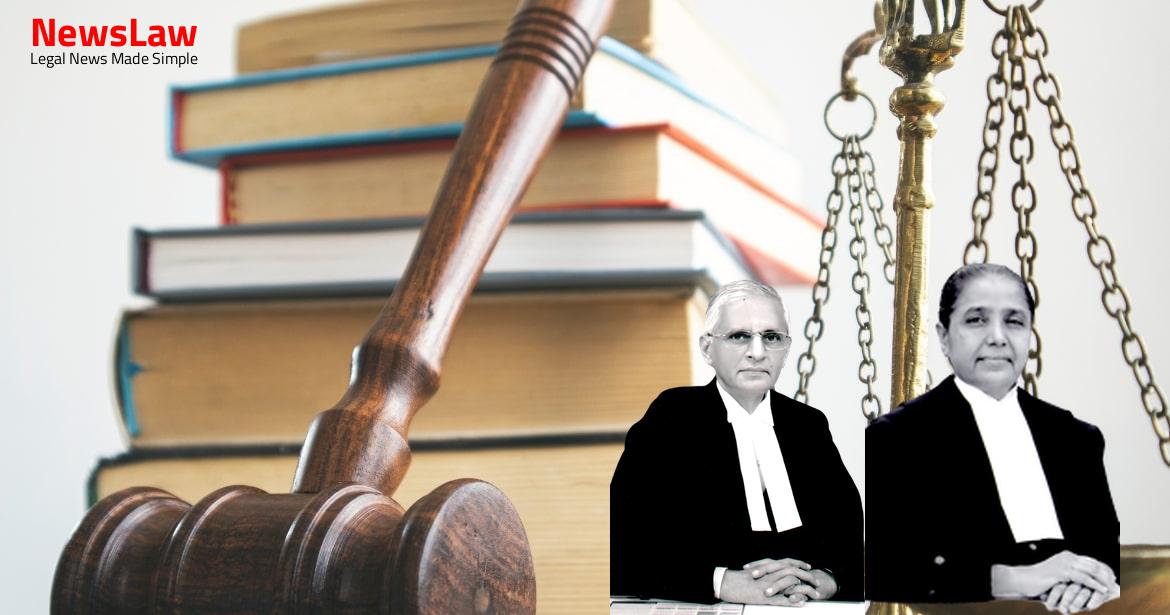In a significant legal battle, the Supreme Court of India delivered a crucial judgment in the case involving Railways and Contractors. The dispute revolves around the appointment of arbitrators, highlighting the complexities of arbitration proceedings in contractual matters. This ruling sets a precedent for resolving similar disputes in the future. Read on to understand the intricacies of the case and its implications for the parties involved.
Facts
- Northern Railways awarded a contract for civil engineering works to the respondent on 14.07.2010.
- The respondent claimed over Rs. 1.50 crores remained unpaid and requested payment within 90 days.
- Railways rejected the arbitration claim stating full and final payment was made as per final bill and supplementary agreement.
- Respondent filed Arbitration Petition No.168 of 2015 seeking appointment of an arbitrator.
- High Court held the discharge certificate and supplementary agreement need examination by arbitrator for possible duress.
- Railways forfeited right to appoint arbitrator by not doing so after respondent’s invocation of arbitration clause.
- Mr. Ram Prakash, a retired District and Sessions Judge, was appointed as sole arbitrator by the Court.
- Another agreement for a road overbridge construction was made on 17.01.2012 between Railways and respondent.
- Supplementary agreement recorded full accord and satisfaction as of 06.05.2014.
- Respondent alleged signing the final bill under duress in a letter sent on 05.05.2014.
- Section 11(6) empowers the court to appoint an independent arbitrator, deviating from the agreement terms if necessary.
Also Read: High Court Acquittal Case of State of Uttar Pradesh v. Jai Prakash
Arguments
- The respondent argues that the ‘No Claim’ letter was issued under compulsion.
- The respondent claims that there was undue influence by the authorities in issuing the ‘No Claim’ certificate.
- It is contended that the arbitrator has the authority to examine the bills for payment and adjudicate the matter.
- The respondent argues that the issuance of the ‘No Claim’ certificate should not be considered an ‘excepted matter’.
Also Read: Judgment Review: Supreme Court’s Ruling on the Capital Punishment Appeal
Analysis
- Justice P.K. Bahri could not be appointed as the sole arbitrator due to being a High Court judge.
- The judgment appointing Justice P.K. Bahri as sole arbitrator is set aside.
- The sole arbitrator must be appointed within 60 days of a valid arbitration demand by GM.
- The contractors, registered with Railways, are claiming payments for work done.
- Railways denied the arbitration request, claiming settlements and ‘No Claim’ certificates.
- The request for arbitration was made before the 2015 Amendment Act.
- The provisions of the Amended Act, 2015 do not apply unless agreed by the parties.
- The Arbitral Tribunal should consist of a panel of Railway Officers or retired officers.
- The General Manager must appoint the arbitrators within 30 days of receiving nominee names.
- The request by the contractors is to be analyzed under the Principal Act, 1996 only.
- The High Court should not interfere in the constitution of the Arbitral Tribunal as per clauses 63 and 64 of the General Conditions of Contract.
- Referring to the case of Union of India v. M.P. Gupta, it was established that the High Court should not appoint a retired Judge of the High Court as a sole arbitrator when two gazetted railway officers are to be appointed as arbitrators per the contract.
- Failure of public institutions to appoint an arbitrator allows the High Court to intervene under Section 11, as per the observations in various judgments including M.P. Gupta and V.S. Engineering.
- In the case of Parmar Construction Company, the court set aside the appointment of an independent arbitrator and directed the General Manager of the Railways to appoint an arbitrator according to Clause 64(3) of the agreement.
- The orders passed by the High Court appointing an independent arbitrator were quashed and set aside due to not following the prescribed procedure under the contract.
- The Amendment Act, 2015 does not apply to arbitral proceedings commenced before its enforcement, unless agreed upon by the parties, as evidenced in the Union of India v. Parmar Construction Company case.
- Application requests for arbitrator appointment made before the enforcement of the Amendment Act, 2015 should be examined under the principal Act, 1996 without invoking the provisions of the Amendment Act.
- Clause 64(1) of the General Conditions of Contract (GCC) specifies the procedure for demand for arbitration in case of disputes or differences between parties.
- The demand for arbitration must be made in writing and specify the matters in question along with the amount of claim item-wise.
- An officer of Selection Grade of the Accounts Department is considered at par with officers in SA grade of other departments for the purpose of appointing an arbitrator.
- The provisions of the Arbitration and Conciliation Act, 1996 and any statutory modifications apply to arbitration proceedings under Clause 64.
- The appointment of an arbitrator should be in accordance with the terms of the contract when the agreement specifies named arbitrators.
- The decision regarding appointment of arbitrators should be in accordance with the agreement.
- High Court’s appointment of an independent arbitrator ignoring the contract clause was deemed incorrect.
- The appellant’s argument regarding settlement of final bill and issuance of ‘No Claim’ letter was discussed.
- Clause 43(2) regarding ‘No Claim’ certificate was referred to by the appellant’s counsel.
- The respondent disputed that the ‘No Claim’ certificates were issued under compulsion and undue influence.
- The court declined to delve into the merits of the parties’ contentions.
Also Read: The Ruias v. MHL: Landmark Supreme Court Judgement
Decision
- The impugned judgments of the High Court of Delhi in two arbitration petitions are set aside and the appeals are allowed.
- The appellants are directed to appoint two gazetted railway officers as arbitrators within 30 days.
- The newly appointed arbitrators must enter into reference within one month and make their award within three months.
- If needed, the Chief Justice or designated Judge will appoint a railway officer or High Court Judge as arbitrator.
- Appellants must appoint the arbitrator as per the contract within one month under intimation to the contractors.
- Statements of claim must be furnished by contractors within four weeks after the arbitrator’s appointment.
- The arbitrator should decide the claims after affording both parties an opportunity of hearing expeditiously.
- All contentions raised by parties can be brought up before the arbitrator.
- The arbitrator should proceed in accordance with the law and decide the claim within four months.
- Upon the communication of arbitrator’s appointment, respondent(s) must file the statement of claim within six weeks.
- Appellant’s reply must be filed within an appropriate timeframe.
Case Title: UNION OF INDIA Vs. PRADEEP VINOD CONSTRUCTION CO.
Case Number: C.A. No.-006400-006400 / 2016



